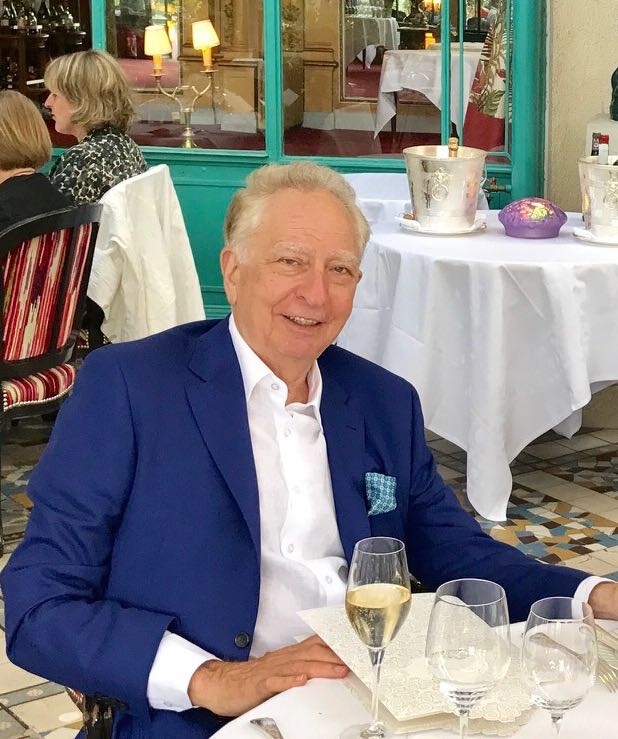An air of inanity pervades the debate about Syria—obscuring the
underlying fears and motives, the real forces behind a surrealistic, blood-soaked
drama worthy of Kafka, Ionesco, or Pinter.
It’s evident, for instance, that the 800-pound guerrilla hovering
behind the debate is Israel and its American backers, one of the most powerful
lobbies in Washington.
What has not been made clear is that, lurking in the
background, is another shadowy hulking presence: Israel’s nuclear weapons
capacity, which—as I’ve previously blogged--Israel
has never officially acknowledged and most U.S. administrations have done their
best to ignore. As have the mainstream press and the gaggle of statesmen,
commentators and “experts” with weighty proposals on how to resolve the current
crisis.
For instance,
Senator Joe Manchin III, a conservative Democrat from West Virginia, would give
Bashar al-Assad 45 days to sign the Chemical Weapons Convention and begin
ridding the country of its weapons stockpiles. Only if Assad refuses would the
American president be authorized to take military action.
“We need
some options out there that does something about the chemical weapons,” Mr.
Manchin said. “That’s what’s missing right now.”
That proposal, however, comes across as hopelessly naïve
when you understand why Syria’s leaders opted for chemical weapons in the first
place.
It was not with the intention of deploying CW against their
own people. It was instead an attempt to develop an affordable and meaningful deterrent
to Israel’s daunting military might, particularly to Israel’s nuclear
capability.
That’s the bottom line of several serious studies of Syria’s
weapons program, done over the past few years by American and other experts. As
a
study published by the European Union’s non-proliferation consortium in
July 2012, concluded, “Syria’s CWs are not tactical or battlefield weapons,
but rather a strategic deterrence against Israel’s conventional superiority and
its nuclear weapons arsenal.IWhile Israeli leaders have always portrayed
their country as an embattled David, confronting an existential threat from an
Arab –and now,Iranian—Goliath, Syria’s perspective has been totally
different.
As the rulers in Damascus have seen it, Israel, thanks to
its sophisticated industrial base, and unwavering financial and political support from the
United States, has been able to develop by far the most powerful military
forces in the region—with its own nuclear trump card.
The Syrians, on the other hand, have suffered one
humiliating setback after another, from the failure to defeat Israel in 1948,
to Israel’s on-going occupation of the Golan Heights, which they took in 1967,
to Israel’s repeated forays into South Lebanon.
The Syrians, however, came to realize they could never equal
Israel’s military might. They opted
instead for a practical alternative: chemical weapons. If not strategic parity,
CW would at least give Syria, if the chips were down, a fearful enough weapon
to brandish against Israel’s nuclear capabilities.
As the European Union’s study said, “With meager resources, an inadequate military culture and a weakening,
less-than-reliable Soviet patron, Syria was in no position to maintain its
policy of conventional parity. That became amply clear at the turn of the
1990s, when Syria approached economic bankruptcy, witnessed the collapse of the
USSR and had to adapt to rising US influence in the region.”
Syria’s
determination to maintain its chemical arsenal could only have increased after 2007
when Israeli planes bombed what was apparently a Syrian attempt to construct a
nuclear reactor.
One Israeli
analyst claimed
that CWs and associated delivery
systems became, for lack of better options, the ‘core’ of Syria’s security
strategy, a ‘wild card’ that would create enough uncertainty in the minds of
Israeli decision makers to prevent an escalation of an existential nature.
Another analyst who has a unique view of Syria’s
CW strategy is M. Zuhair Diab, an
international security analyst now living in London. From 1981 to 1985 he was a
diplomat with the Syrian Ministry of Foreign Affairs. As he put it in a study
in 1997.
“Syria seeks to neutralize Israel’s ability to employ
nuclear blackmail to coerce it into accepting unfavorable conditions for a
peace settlement. Syria’s increased bargaining leverage with Israel as result
of its CW capability has been demonstrated by Israel’s inability to dictate its
terms in the peace negotiations between the two sides. Indeed, the late Israeli
Prime Minister Yitzhak Rabin recognized that a condition ofstrategic stalemate
had emerged between Israel and Syria.”
Syria has not signed the 1993 Chemical Weapons Convention.
Whenever the issue comes up, Syria’s leaders have invariably cited Israel’s
nuclear weapons program, and the fact that Israel refused to sign the 1968
Non-Proliferation Treaty.
In other words, Syria is not going to unilaterally lay down
its most potent weapon.
Think what you will of the men governing Syria, but how can
Israel or its American backers, answer that argument? Particularly if they
still refuse to admit officially that Israel even has nukes?
The analysis of Syria’s CW program by the former Syrian
diplomat, was written in 1997, 14 years before the outbreak of the civil war which
is currently ripping apart his country. At that time, according to him, there
were only two realistic scenarios for Syrian tactical use of CW. They both
involved defending against Israel.
“1) if Israel launches an offensive involving first use of
CW, forcing Syrian units to retaliate in-kind; or 2) if the defensive perimeter of Damascus, the Syrian
capital, (italics added) collapses as a result of an Israeli incursion
through the Golan Heights or a flanking maneuver through the Bekaa Valley in
Lebanon.”
With the existence of the Assad regime now at stake, the
Syrian military’s doctrines on whom they might target with CW may have changed.
But not the trip wire that might provoke them to unleash CW: a serious threat
to the Syrian capital.
What is striking about the study from the former Syrian
diplomat I’ve just cited is the fact that, according to some sources, the
reason that Syrian military units may have resorted to CW on August 21, was as
a desperate measure to drive rebel forces from a strategically key suburb of Damascus.

